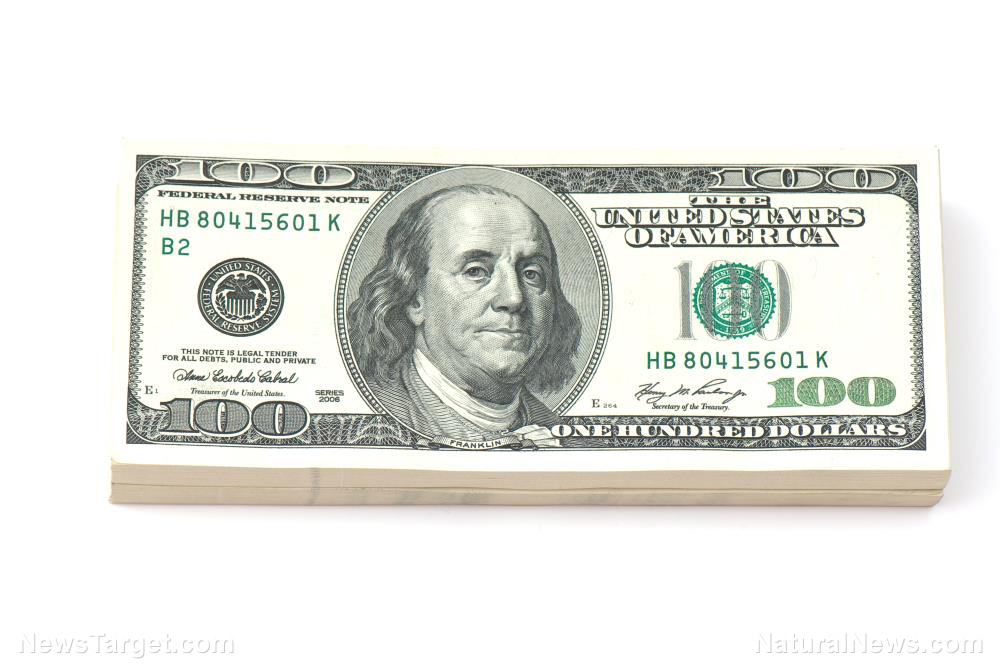
This is according to proclamations by Russia's executive director for the International Monetary Fund, Alexey Mozhin. He said that the downfalls of the current financial system are growing more obvious and pointed out how BRICS could step up in such an event and provide a viable alternative.
According to Mozhin, BRICS member countries could develop a currency based on those of its members, including the Indian rupee, the Chinese yuan, the Brazilian real, the South African rand and the Russian ruble.
He told the media: “Such a proposal is being discussed. In the event of the collapse of the dollar and the international monetary system, it will be necessary to turn the said BRICS accounting unit into a real currency, backed by exchange goods.”
There has been widespread support among BRICS nations and other countries for moving away from the dollar in favor of national currencies. The bloc is also reportedly looking into digital currencies as a means of providing more mechanisms for trade.
The idea is to reduce their vulnerability to fluctuations in dollar exchange rates and reduce the impact of financial sanctions from the West. This was on full display when the Western financial system cut Russia off after the Ukraine conflict broke out in 2022. Some observers feel that developing a common currency will be an uphill battle given the many geographic, political and economic disparities between the BRICS member nations.
However, leaders like Brazilian President Luiz Inacio Lula da Silva said that countries that do not use the dollar should not be compelled to trade with each other using the currency. At a summit last year, he explained that a BRICS currency “increases our payment options and reduces our vulnerabilities.”
BRICS could end the dollar's dominance even without a shared trade currency
Even without a shared trade currency, the bloc could still swing an “economic wrecking ball” at the dollar’s dominance, according to former White House economist Joe Sullivan. He said that although BRICS nations have denied that a rival currency is imminent, the bloc of other emerging market countries that have been invited to join their ranks, such as Iran, Saudi Arabia, United Arab Emirates, Ethiopia, Argentina and Egypt, could pose a big threat to the dollar as their influence grows.
In fact, with Saudi Arabia, Ethiopia, and Egypt – three countries that surround the Suez Canal, a vital passageway for goods flowing into international markets – joining, BRICS would then have an influence over 12% of all global trade. Meanwhile, with Iran, the UAE and Saudi Arabia sitting among the biggest global exporters of fossil fuels and Russia, China and Brazil as major precious metal exporters, the bloc could have significant sway in the commodities markets.
He stated: "The BRICS+ nations do not need to wait until a shared trade currency meets the technical conditions typical of global reserve currency before they swing their newly enlarged economic wrecking ball at the dollar."
The Chinese yuan is already pushing out other currencies in trade as its trading partners increasingly use it, and this could see the dollar lose its stronghold.
"The BRICS+ states do not even necessarily need to have a shared trade currency to chip away at King Dollar's domain. If BRICS+ demanded that you pay each member in its own national currency in order to trade with any of them, the dollar's role in the world economy would go down,” Sullivan added.
With BRICS member states now being more open about moving away from the dollar and trading in national currencies or developing their own currency, it’s time to prepare for the reality that full dedollarization may happen sooner than once believed.
Sources for this article include:
Please contact us for more information.

















